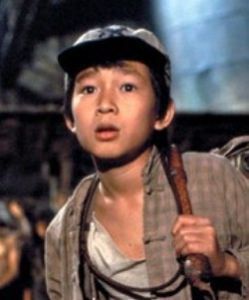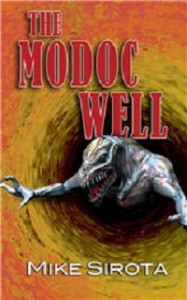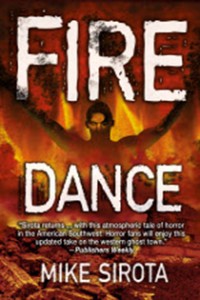I first published this post in 2012, but its message is timeless.
Do you expect to strike it rich writing books? Not likely. Let me share some thoughts from what I’ve experienced over the past gazillion years and nearly thirty novels written.
When I made the commitment to start writing novels a long, long time ago I began by sticking to one of the basic tenets: Write what you know. I knew Edgar Rice Burroughs, Lin Carter, Robert E. Howard, John Norman, Otis Adelbert Kline, among others, and my first thirteen published books (and a few unpublished) reflected this influence. Nothing wrong with that; it’s a good way to get started. (But so is writing what you DON’T know, and even writing what you WANT to know.)

“Fortune and glory…”
Remember what the neat kid, Short Round, dreamed about in the second Indiana Jones movie? Yeah, fortune and glory. That’s what I hoped for, and writing adventure fantasy and sword & planet novels weren’t doing it, so I looked at what was currently selling—this was the early to mid-eighties—and decided to write what was hot: romance novels. Harlequin, Loveswept, imprints like that.
Mistake #1: what’s selling today will likely not be selling by the time you complete a novel, much less get it published. I used to be able to pop out a novel in a couple of months. Most writers can’t do that. Even so, then it has to be sold; that could take a long time. Then, a publisher has to put it on their schedule, which at that time could be a year, even longer. Got the point?
Mistake #2: I’d never read a romance novel in my life and had no interest in them whatsoever. I forced myself to read a half-dozen or so before I undertook the project, and I mean forced. Predictably, the few chapters I managed to pump out were crap, and I abandoned the effort. Maybe another tenet should be, “Don’t write what you don’t like to read.” Duh, ya think?
 But I didn’t let up, and when Stephen King pretty much launched the horror market, I wrote one of my own, titled The Well. At least I enjoyed reading that genre. But by the time I was ready to take it out to market, the horror market had died. (No pun intended.) For most of the 1980s only King, Peter Straub, Dean Koontz, and a handful of others had much success with horror. So I kept it in the drawer for nearly a decade, until horror was hot once more (these things run in cycles), and Bantam Books published it in 1991. (I reissued it a few years ago under my own imprint as The Modoc Well.)
But I didn’t let up, and when Stephen King pretty much launched the horror market, I wrote one of my own, titled The Well. At least I enjoyed reading that genre. But by the time I was ready to take it out to market, the horror market had died. (No pun intended.) For most of the 1980s only King, Peter Straub, Dean Koontz, and a handful of others had much success with horror. So I kept it in the drawer for nearly a decade, until horror was hot once more (these things run in cycles), and Bantam Books published it in 1991. (I reissued it a few years ago under my own imprint as The Modoc Well.)
Still, Short Round’s fortune and glory remained elusive, and by the mid-nineties, after some tough times, I finally got the message. For the past two decades, as a writing coach, editor, and maven to many aspiring authors, I have applied what I learned in the School of Hard Knocks. I established Sirota’s Rules of Writing. There are two of them, and they are simple.
Rule #1: Keep your day job.
Rule #2: Write because you love writing.
All writers—all people—would like to have a taste of fortune and glory; I understand that. But that dream comes to few novelists. So I’ve always set expectations before working with any writer. Most writers are realistic; occasionally, some are not, and because of that I will refuse to work with them, no matter how talented they are.
Here is an extreme example—and I swear I’m not making this up. Years ago I was scheduled to teach a six-week course on writing novels for the University of California, San Diego (UCSD) Extension. A woman called me before the first session, said that she signed up, and asked if I could meet with her an hour before the first class. She showed up, switched on a tape recorder, stuck a mic in my face and asked me to tell her everything I could about writing and getting published before the class started. I figured she must have a completed manuscript all ready to go. No, actually, all she’d ever written before were letters, but her family told her how great she wrote, so she figured—this was her timeline—that she could have a novel completed in a few months and published by the end of the year, and (she said this!) make the kind of money that Danielle Steel and Stephen King made.
 Okay, you can guess how I wanted to respond to this, but what I told her was to just be patient, and all of her questions would be answered over the six weeks. After the class arrived I did my usual introduction, which included, somewhere in the first ten minutes of the initial session, reciting Sirota’s Rules of Writing. The woman’s eyes bulged when I said, “Keep your day job, and write because you love writing.” At the break she went to the office, got her money back, and left, never to be seen again.
Okay, you can guess how I wanted to respond to this, but what I told her was to just be patient, and all of her questions would be answered over the six weeks. After the class arrived I did my usual introduction, which included, somewhere in the first ten minutes of the initial session, reciting Sirota’s Rules of Writing. The woman’s eyes bulged when I said, “Keep your day job, and write because you love writing.” At the break she went to the office, got her money back, and left, never to be seen again.
I resumed writing a few years ago, not for fortune and glory, but because I love doing it, and I’ll continue writing until I get summoned up to the Mother Ship, or Barsoom, or wherever. If I was concerned about losing my touch, the initial effort, a ghost story titled Fire Dance, received a good deal of critical acclaim and was a finalist in the San Diego Book Awards for the category of Sci-Fi, Fantasy, and Horror. Writing is a joy for me.
Yeah, but a little fortune and glory would be all right too…
